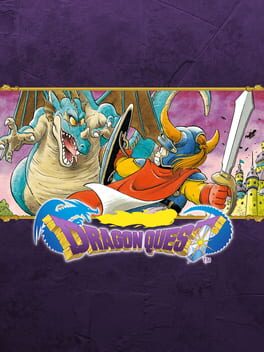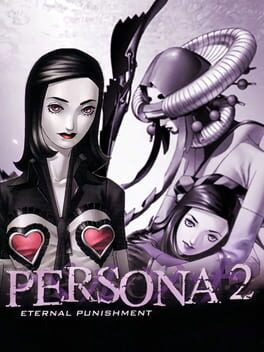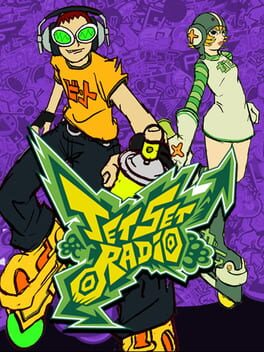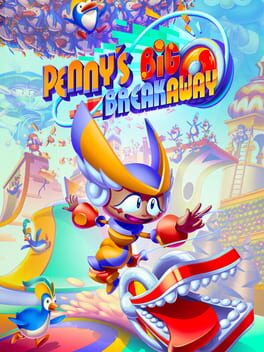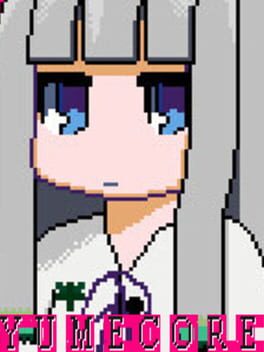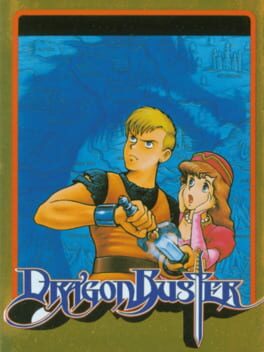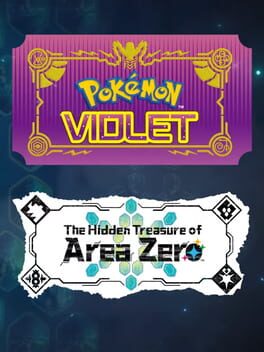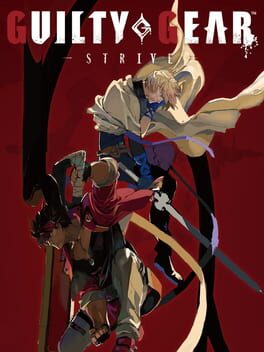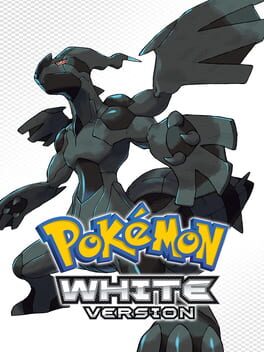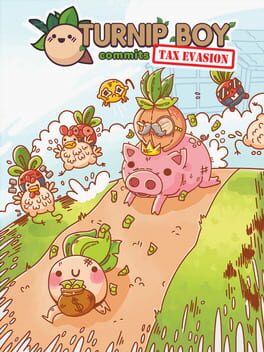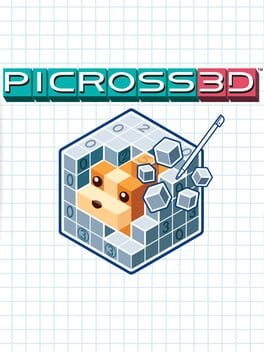Nauty
57 Reviews liked by Nauty
Dragon Quest
2004
You know how it is. The most an artist's death has gotten me to cry in a long time - the infectious creative energy I've felt lent down to me from his work is something that'll never leave me. And just like everyone else, I've found myself pouring through dozens and dozens of heartfelt tributes to the man's legendary career. But reading it all got me thinking...ain't the meat and potatoes reputation Dragon Quest has earnt itself kind of like, an error? An impossibility?
So, lemme ask you a question: when's the first time you saw something that made you think "Dragon Quest is cool"? I couldn't tell you what mine was, but recently finishing a full playthrough of the original NES Dragon Warrior pulled me back into the correct reality in which this series was not "generic", but an outlier in style. Toriyama's enthusiasm to play the hits puts the personality on display in its monsters maybe 20 years ahead of the curve. As an aside, I also recommend to anyone playing any older Dragon Quest to look up some scans of the old manuals; the effortless coolness of his artstyle had already bled into DQ's identity.
You could call this game a "grind", but the grind is the gameplay and the gameplay is good. Each individual battle is simple to solve in a bubble, but enemies are split between the ones you can defeat with or without expending resources - instantly spiraling the world into an ever-evolving puzzle to solve. Planning out a trajectory of travel immediately prompts a dizzying amount of dice rolls in your head: how many resources should I spend to gain EXP? How much should I dice roll running away, and how much magic will I have left to heal myself up considering both the expected and unexpected outcomes? Inner workings filled with perfect math to never quite satisfy things with a clear answer; but what raises this from good to great is how through my entire time playing the game, I always undershot my potential. Enemies that are apparently stronger than you can be taken down with perfect resource management, finding consistency in a haze of lottery tickets that makes you feel genius every time you take one down and keep a little more magic for the rest of the trip than your last encounter with the same guy.
And in comparison to how grinding is often characterized as a boring chore-like task, I think playing this game is way closer to exhausting - you can do a good run, and do another, and then lose to a Skeleton you've already defeated 10 times and now half your gold is gone. You probably haven't even made it halfway to the level you want yet! But for every moment of flighty confusion, there's also a moment where you get to level 3, gain heal, and kill the first slime you see in one hit.
and that's how they get you
Random encounters are most frequently characterized as one of those unsavory bits of RPG we chop off, but playing this helped click into place how much texture can be applied to identical floor tiles simply by the difference in looming threat. The invisible encounter sheet constantly shifting under your feet giving cool and hostile sensation to each step, and when you realize you can kill something that once scared you off, the level design changes. Reinforces the process of seamless non-linear exploration with an information game unique to the format - a grind made engaging by the real question being where to even grind in the first place. This is an RPG with no vestigial limbs. Every single part of an RPG you've questioned the integral elements of is present working in perfect harmony with each other; last year, I found myself actively frustrated playing a newly released turn-based RPG in which the mindlessness of each individual encounter serves no purpose. Without long-term resource management, of course random encounters are boring! Or, in contrast to RPGs where levels feel like guided progress, here, lower level enemies to begin to run away, breaking the consistency of previously successful sources of experience and gold. Now, with every moment of newly found strength matched by a push out of my comfort zone, I'm like "ohhh i get it now"
and they got me
This is all coming from a relatively young person's perspective (i turned 22 around when i wrote most of this happy birthday me :D ), so there's this tough balance to reach when it comes to simultaneously embracing that sometimes, traits of oldness are endearing to me, and making sure I don't sound like I am looking down on something, or it's a novelty.
In the past few months, I ended up playing a bunch of games from the mid-late 2000s, and it was easy to lose yourself in a sea of fifteen year old Gamefaqs threads, and chat with people just a bit older than me who experienced all these things organically in their childhood. Especially due to growing up with games from the same era, it was easy for me to imagine myself playing these as a kid, wondering how this could've effected me sooner. Dragon Quest on the contrast is for a bit older of a generation than me, especially with some of its strongest cultural imprint existing beyond language barrier. I played this alongside someone close to me - we honestly couldn't stop gushing to each other about how satisfying the sleuthing was as we kept a million notes marked down. There's a great moment in which a secret that's visibly hinted to you in one of the last towns has an equivalent but invisible secret in one of the first towns; this is one of the oldest games I've played with a strong design language. Things like this got us close to that ideal you hear of pen and paper hint tracking. Eventually, it became natural to feel like playing the game like this was making me fall into the past footsteps of someone else; it's hard not to romanticize it like we were 2 little kids playing the game lit by nothing but the humming static of a CRT. And even though I've literally known people not even a decade older than me that grew up with this game, it's immersing myself in a distinctly different time-frame from usual that makes that era feel so far away. It's that solidarity with a perspective just out of reach that starts positively haunting the game with the ghost of lived experience.
So, lemme ask you a question: when's the first time you saw something that made you think "Dragon Quest is cool"? I couldn't tell you what mine was, but recently finishing a full playthrough of the original NES Dragon Warrior pulled me back into the correct reality in which this series was not "generic", but an outlier in style. Toriyama's enthusiasm to play the hits puts the personality on display in its monsters maybe 20 years ahead of the curve. As an aside, I also recommend to anyone playing any older Dragon Quest to look up some scans of the old manuals; the effortless coolness of his artstyle had already bled into DQ's identity.
You could call this game a "grind", but the grind is the gameplay and the gameplay is good. Each individual battle is simple to solve in a bubble, but enemies are split between the ones you can defeat with or without expending resources - instantly spiraling the world into an ever-evolving puzzle to solve. Planning out a trajectory of travel immediately prompts a dizzying amount of dice rolls in your head: how many resources should I spend to gain EXP? How much should I dice roll running away, and how much magic will I have left to heal myself up considering both the expected and unexpected outcomes? Inner workings filled with perfect math to never quite satisfy things with a clear answer; but what raises this from good to great is how through my entire time playing the game, I always undershot my potential. Enemies that are apparently stronger than you can be taken down with perfect resource management, finding consistency in a haze of lottery tickets that makes you feel genius every time you take one down and keep a little more magic for the rest of the trip than your last encounter with the same guy.
And in comparison to how grinding is often characterized as a boring chore-like task, I think playing this game is way closer to exhausting - you can do a good run, and do another, and then lose to a Skeleton you've already defeated 10 times and now half your gold is gone. You probably haven't even made it halfway to the level you want yet! But for every moment of flighty confusion, there's also a moment where you get to level 3, gain heal, and kill the first slime you see in one hit.
and that's how they get you
Random encounters are most frequently characterized as one of those unsavory bits of RPG we chop off, but playing this helped click into place how much texture can be applied to identical floor tiles simply by the difference in looming threat. The invisible encounter sheet constantly shifting under your feet giving cool and hostile sensation to each step, and when you realize you can kill something that once scared you off, the level design changes. Reinforces the process of seamless non-linear exploration with an information game unique to the format - a grind made engaging by the real question being where to even grind in the first place. This is an RPG with no vestigial limbs. Every single part of an RPG you've questioned the integral elements of is present working in perfect harmony with each other; last year, I found myself actively frustrated playing a newly released turn-based RPG in which the mindlessness of each individual encounter serves no purpose. Without long-term resource management, of course random encounters are boring! Or, in contrast to RPGs where levels feel like guided progress, here, lower level enemies to begin to run away, breaking the consistency of previously successful sources of experience and gold. Now, with every moment of newly found strength matched by a push out of my comfort zone, I'm like "ohhh i get it now"
and they got me
This is all coming from a relatively young person's perspective (i turned 22 around when i wrote most of this happy birthday me :D ), so there's this tough balance to reach when it comes to simultaneously embracing that sometimes, traits of oldness are endearing to me, and making sure I don't sound like I am looking down on something, or it's a novelty.
In the past few months, I ended up playing a bunch of games from the mid-late 2000s, and it was easy to lose yourself in a sea of fifteen year old Gamefaqs threads, and chat with people just a bit older than me who experienced all these things organically in their childhood. Especially due to growing up with games from the same era, it was easy for me to imagine myself playing these as a kid, wondering how this could've effected me sooner. Dragon Quest on the contrast is for a bit older of a generation than me, especially with some of its strongest cultural imprint existing beyond language barrier. I played this alongside someone close to me - we honestly couldn't stop gushing to each other about how satisfying the sleuthing was as we kept a million notes marked down. There's a great moment in which a secret that's visibly hinted to you in one of the last towns has an equivalent but invisible secret in one of the first towns; this is one of the oldest games I've played with a strong design language. Things like this got us close to that ideal you hear of pen and paper hint tracking. Eventually, it became natural to feel like playing the game like this was making me fall into the past footsteps of someone else; it's hard not to romanticize it like we were 2 little kids playing the game lit by nothing but the humming static of a CRT. And even though I've literally known people not even a decade older than me that grew up with this game, it's immersing myself in a distinctly different time-frame from usual that makes that era feel so far away. It's that solidarity with a perspective just out of reach that starts positively haunting the game with the ghost of lived experience.
Balatro
2024
Jet Set Radio
2012
If Gravity Circuit is an example of a game "not understanding the inner workings of the many things it's inspired by", then Penny's Big Breakaway is the exact opposite. If anything, this game feels like something made by game designers first, and everything else second.
This is to say: Penny's moment to moment gameplay is really good. It's an incredibly smart game from start to finish. Penny herself is up there in the list of "best controlling platforming characters." There existing an actual learning curve to effectively using the Yoyo tricks to keep your flow is shows to me that Evening Star understands the secret sauce of other high skill ceiling platformers. The combo system and focus on score attack mechanics does wonders for this game's level design and dramatically increases the depth of sections I typically would not have a second thought about. "How do I get through this efficiently?", "Should I risk getting hit and dropping my multiplier here?", etc. There's tons of performers in Penny's (being the game's theme) and you, the player, are one too. The developers ask you to step into the spotlight: "can you show us that you've got it down?"
It's funny to hear the mixed reception of this game's controls in more critical spaces online, because all the people I've seen who stuck with it ended up appreciating how Penny's plays by the end.
Almost as if game design that pushes the player to get better can be rewarding, or something...
Now, I won't boil down all (only some) of the complaints about this game into a simple "skill issue"-- it's clearly more complicated than that. The bugs, for example, are not really a complaint that can be argued against. I think some exaggerate how often and intrusive the glitches really are, but there's definitely some jank in this game. It feels bad to lose your high combo due to a physics inconsistency. I also think Penny's suffers from "bad boss fight" disease-- strange for a game that seemingly understands platformers can be satisfying without them. It especially hurts to end the game on such a "blah" note of the final boss which captures exactly none of the aspects that make the levels so fun.
Out of all the complaints I'm the most sympathetic to, though, it has to be what I've seen about the presentation. Don't get me wrong-- it's not bad at all. There's some truly good tracks and area design in this game. Tee Lopes in particular pops off for the level themes in this game. I like that guy. But I don't know, man. If Penny's has the secret sauce in regards to its level design and moment to moment gameplay, I don't think it does in regards to its presentation. I wasn't ever really enraptured with the world of Macaroon like I was with the technically amazing game design. I still like Penny (the girlie) though. She's cool, even if she does have grandma hair.
Still, Penny is a great game. It genuinely makes the shot for one of the best 3D platformers I have ever played, and if Evening Star can make something this impressive when left to their own devices I greatly anticipate whatever it is they make next. There's clearly some real talent here.
This is to say: Penny's moment to moment gameplay is really good. It's an incredibly smart game from start to finish. Penny herself is up there in the list of "best controlling platforming characters." There existing an actual learning curve to effectively using the Yoyo tricks to keep your flow is shows to me that Evening Star understands the secret sauce of other high skill ceiling platformers. The combo system and focus on score attack mechanics does wonders for this game's level design and dramatically increases the depth of sections I typically would not have a second thought about. "How do I get through this efficiently?", "Should I risk getting hit and dropping my multiplier here?", etc. There's tons of performers in Penny's (being the game's theme) and you, the player, are one too. The developers ask you to step into the spotlight: "can you show us that you've got it down?"
It's funny to hear the mixed reception of this game's controls in more critical spaces online, because all the people I've seen who stuck with it ended up appreciating how Penny's plays by the end.
Almost as if game design that pushes the player to get better can be rewarding, or something...
Now, I won't boil down all (only some) of the complaints about this game into a simple "skill issue"-- it's clearly more complicated than that. The bugs, for example, are not really a complaint that can be argued against. I think some exaggerate how often and intrusive the glitches really are, but there's definitely some jank in this game. It feels bad to lose your high combo due to a physics inconsistency. I also think Penny's suffers from "bad boss fight" disease-- strange for a game that seemingly understands platformers can be satisfying without them. It especially hurts to end the game on such a "blah" note of the final boss which captures exactly none of the aspects that make the levels so fun.
Out of all the complaints I'm the most sympathetic to, though, it has to be what I've seen about the presentation. Don't get me wrong-- it's not bad at all. There's some truly good tracks and area design in this game. Tee Lopes in particular pops off for the level themes in this game. I like that guy. But I don't know, man. If Penny's has the secret sauce in regards to its level design and moment to moment gameplay, I don't think it does in regards to its presentation. I wasn't ever really enraptured with the world of Macaroon like I was with the technically amazing game design. I still like Penny (the girlie) though. She's cool, even if she does have grandma hair.
Still, Penny is a great game. It genuinely makes the shot for one of the best 3D platformers I have ever played, and if Evening Star can make something this impressive when left to their own devices I greatly anticipate whatever it is they make next. There's clearly some real talent here.
Poop Killer 7
2023
YumeCore
2018
Dragon Buster
1985
Dragon Buster is the first at a lot of things. It's the "first game to have RPG elements", first game to implement permeating platformer concepts like double jumping, and even the first game to have combos where you lose 80% of your health in one interaction because the Wizards juggle you like Sol Badguy doing Sidewinder loops on you.
It's not a good game. Honestly, I don't know if there's anything good about Dragon Buster. The gameplay is terrible. If the rooms of enemies you have to fight through don't just simply decide you lose and bounce Clovis (yes, that's his name) around like a tennis ball, you still have to contend with some of the clunkiest feeling controls I've ever had the pleasure to play with, and not in a meaningful way either. It is a difficult ordeal to jump forward in this game. If you hate Ice Climber for having "bad jumping physics" you haven't seen anything! Eat your heart out!
Dragon Buster's presentation is an unbelievably bad output from Namco in this era, too. I don't get why the game looks and sounds like it this. This game uses the Pac Land engine! A game that looks nice!
Look at how Clovis's sprite looks!
Listen to how the music sounds!
What the hell happened?!
To apply some sort of thesis to all this, maybe Gamers shouldn't apply so much importance to being a pioneer. These games command a certain deal of a respect-- don't get me wrong! But being the first does not a good game make, y'know? It's more complicated than that. That's what makes the craftmanship of better "firsts" than this game awe inspiring.
Still, I don't hate this game. I think action platformers with RPG elements are just my comfort food. If I was there
in 1984 era Japan I would've ate Dragon Buster up. And truthfully, this game has one good thing:
it is really awesome that you can turn the princess that you save into a bunnygirl if you play it long enough. They really had hot stuff in '84 with her and Ki from Tower of Druaga, huh?
(And by the way, that game clears the shit out of this.)
It's not a good game. Honestly, I don't know if there's anything good about Dragon Buster. The gameplay is terrible. If the rooms of enemies you have to fight through don't just simply decide you lose and bounce Clovis (yes, that's his name) around like a tennis ball, you still have to contend with some of the clunkiest feeling controls I've ever had the pleasure to play with, and not in a meaningful way either. It is a difficult ordeal to jump forward in this game. If you hate Ice Climber for having "bad jumping physics" you haven't seen anything! Eat your heart out!
Dragon Buster's presentation is an unbelievably bad output from Namco in this era, too. I don't get why the game looks and sounds like it this. This game uses the Pac Land engine! A game that looks nice!
Look at how Clovis's sprite looks!
Listen to how the music sounds!
What the hell happened?!
To apply some sort of thesis to all this, maybe Gamers shouldn't apply so much importance to being a pioneer. These games command a certain deal of a respect-- don't get me wrong! But being the first does not a good game make, y'know? It's more complicated than that. That's what makes the craftmanship of better "firsts" than this game awe inspiring.
Still, I don't hate this game. I think action platformers with RPG elements are just my comfort food. If I was there
in 1984 era Japan I would've ate Dragon Buster up. And truthfully, this game has one good thing:
it is really awesome that you can turn the princess that you save into a bunnygirl if you play it long enough. They really had hot stuff in '84 with her and Ki from Tower of Druaga, huh?
(And by the way, that game clears the shit out of this.)
This review contains spoilers
The Hidden Treasure of Area Zero was truly a cordial crescendo, from quaint, quiet Kitakami to the bodacious, bedazzling Blueberry Academy. This DLC had the same things that I adored about Scarlet and Violet, and then some.
I'll start with the difficulty. Usually, main campaign Pokémon battles are a joke. I sit back, mash A, and OHKO the competition, like a conveyor belt of lambs to the slaughter-machine. This was rarely the case for this DLC. I EV-trained some Pokémon, and thought I raised them as well as I possibly could, and even then, I'd still be at risk of getting thwacked. More often than not, I'd end some very intense battles with only one of my mons left. It's a sense of tension truly unprecedented for modern Pokémon, and it reinvigorated my desire to learn how to properly teambuild.
On top of that was the story. The writers and localizers they've got on board were at their A-game. Every named character I encountered in my time with this DLC was memorable, well-written, and adorable... Kieran's kind of the poster boy of 'em all, and some of the things he says are outright refreshing to me. It feels like he's a personification of the developers being self-aware of the innate privilege a character gets in-universe by being the protagonist. He's absolutely fantastic.
Even the featured legendary Pokémon involved in the stories had a lot to love about them. Ogerpon, Okidogi, Fezandipiti, Munkidori.... Even Terapogos a little. I'm used to solving the problems of legendary Pokémon, but I'm not used to it feeling quite as personal as it is here.
I admit that I actually don't have as much to say about the gameplay additions as I should... perhaps because I had the plot in mind moreso than things such as completing the Pokédex, Tera Raids, or extra stuff like that.
That said, it's in the little things that Pokémon decided to reward you for spending $35.
Items that I'd have had to do an unholy grind for in the maingame are more common in the DLC. Appreciated. You get the chance to rematch folks after everything's completed. Totally righteous. And, naturally, it brings back a whoooole lot of Pokémon. Thank God.
One more thing I'll mention is the epilogue... I'm a sucker for writing, and character interaction; this short little story beat had it in droves. My time with it was short, but it's thanks to this epilogue that I'll fondly remember this DLC campaign for eons.
I hope that everyone who enjoyed the OG Scarlet and Violet gets the chance to enjoy this, too. It's so, so worth it.
I'll start with the difficulty. Usually, main campaign Pokémon battles are a joke. I sit back, mash A, and OHKO the competition, like a conveyor belt of lambs to the slaughter-machine. This was rarely the case for this DLC. I EV-trained some Pokémon, and thought I raised them as well as I possibly could, and even then, I'd still be at risk of getting thwacked. More often than not, I'd end some very intense battles with only one of my mons left. It's a sense of tension truly unprecedented for modern Pokémon, and it reinvigorated my desire to learn how to properly teambuild.
On top of that was the story. The writers and localizers they've got on board were at their A-game. Every named character I encountered in my time with this DLC was memorable, well-written, and adorable... Kieran's kind of the poster boy of 'em all, and some of the things he says are outright refreshing to me. It feels like he's a personification of the developers being self-aware of the innate privilege a character gets in-universe by being the protagonist. He's absolutely fantastic.
Even the featured legendary Pokémon involved in the stories had a lot to love about them. Ogerpon, Okidogi, Fezandipiti, Munkidori.... Even Terapogos a little. I'm used to solving the problems of legendary Pokémon, but I'm not used to it feeling quite as personal as it is here.
I admit that I actually don't have as much to say about the gameplay additions as I should... perhaps because I had the plot in mind moreso than things such as completing the Pokédex, Tera Raids, or extra stuff like that.
That said, it's in the little things that Pokémon decided to reward you for spending $35.
Items that I'd have had to do an unholy grind for in the maingame are more common in the DLC. Appreciated. You get the chance to rematch folks after everything's completed. Totally righteous. And, naturally, it brings back a whoooole lot of Pokémon. Thank God.
One more thing I'll mention is the epilogue... I'm a sucker for writing, and character interaction; this short little story beat had it in droves. My time with it was short, but it's thanks to this epilogue that I'll fondly remember this DLC campaign for eons.
I hope that everyone who enjoyed the OG Scarlet and Violet gets the chance to enjoy this, too. It's so, so worth it.
Guilty Gear: Strive
2021
A game that's impossible to not find alluring, if you've ever had the optimism in your heart to believe that something this charismatic wouldn't eventually fall into the limelight it deserves. Deeply in love with a lineage that has never been able to capture the zeitgeist as much as it naturally should. It's also teetering on a mid-life crisis that I suspect has drained everyone involved with the series to some extent - it’s your Dad’s newfound obsession with motorcycles that wakes you up early in the morning from how fucking loud it is.
Guilty Gear has always had an infectious self-obsessiveness to it - the way you can sense its author let these characters and elaborate stories churn in their head for years, and the way its visuals bring said character's fermented personalities to life is incredible. Phrasing this very expensively produced game like it's a one-man passion project would be misguided, but it's hard not to feel excitement seeing someone's twenty year old notebook scribblings brought to life so lavished. Fleeting glimpses at a full spectrum of human experience within the cast as each hand-animated frame of emotion cascades in its character's faces. The soundtrack echoes a similar feeling; the in-character lyricism creates a bridge between the series' hieroglyphic storytelling and links it to the writer's spirit with excessive clarity and newfound sincerity. Bluntly think the composition is a lot worse than previous entries in the series; the songs barely even function as songs in-game due to often having intros that go on for as long as a full round. And yet, there's something oddly beautiful in how this soundtrack is largely comprised of 5-7 minute long theatrical anthems that you'll literally never hear the entirety of in a single match; the indulgent opportunity to write a musical about your OCs was chosen over creating a soundtrack that suits its source material...I get it. Twenty years of storytelling conclude with the stage curtains raised, resolution brought to a cast that had clearly been rotated in its creator's mind nonstop for longer than I've been alive. Real inspiring.
Despite that, a haze of low morale permeates throughout the community. At launch, the game was praised for its netcode; you could actually play this one with your friends from a different continent, and the fans didn't have to patch it in themselves! But after proving the necessity of rollback to its contemporaries, it's beginning to fall behind. It's sad that I played this game for the first time nearly four years ago, and its lobbies still constantly break on me. Makes the Open Parks feel like walking through someone else's property without permission. Someone dubbed "hackerman" by the community routinely snipes streamers by destroying ping and crashing games - and it's really funny seeing developers also refer to them by that name - but frustratingly still unsolved. And at the core of all of the maelstrom of discussion is the game's modem of modernization: its "casualization".
It might seem obvious at first, but who are these simplifying changes for? The classic high low mix-up system enriches every fighting game with goals of mindfulness; becoming aware of your opponent's tendencies during long sessions is a deeply rewarding process. But when you're starting to learn fighting games, and haven't tapped into that awareness yet - especially if you're playing short sets with randoms, rather than with people you know - it can feel random and frustrating. This is where Strive's simplification becomes a problem: Small health bars and a lack of strong defensive systems result in very turn-based defensive play that is oppressive even at high level. Strive puts more emphasis on the moments you lose a single mix-up taking a chunk out of your health, and makes stages smaller and air-dashes weaker. The neutral in this one feels claustrophobic with so few layers of approach, and so much to lose from a wrong guess; this isn't fun for me, but it's especially not fun for anyone new. Strive is trying to untangle itself from a set of system mechanics that series elders routinely used to bully any new Xrd player, but it seems that they've built a game that still leans towards people who know how fighting games work. Now that the game has had a few years, I can tell there really is a niche for this: I know a lot of people who have been fighting game loosely for years, picked up Strive, and actually got good at it. The first opportunity they've ever had to feel truly successful at a game wrapped in the same packaging as the other anime fighters they've loved, but this time they arrived on-time to grow alongside everyone else. So, is Strive just an expensive video game therapy session, telling its players the obvious fact that you can get good at any fighting game if you just...play it. a lot. I think the answer to this comes down to personal preference...so, I guess I just gotta say how I feel.
I like Guilty Gear: Strive. I like it more than most of my friends who are critical of it, even! It just doesn't have my favourite parts of Guilty Gear - to play a game that is so endlessly in-depth that there are countless routes for improvement in every direction - but it captures the true core appeal for 90% of people, which is playing as the coolest cast of characters ever. I am not immune to this. I just miss when it truly embodied the term "anime fighter": dynamic poses hit in mid-air as both players push to break the game's speed limits. I wish Strive compartmentalized that feeling better, even if it was easier. Regardless, I still felt blessed to be able to share with a lot of my friends what's special about this series. Whenever I had the opportunity to teach someone the game, I'd keep doing really obvious tricks like roman cancelling moving specials into throws, and they'd be like "woah!!". It was cool to see the light in someone's eyes as they learned how to express themselves through a fighting game for the first time. An extreme sense of both passion and compromise runs through Strive's hulking mass - this sorta thing is still difficult to discuss, and its goals are impossible to obtain without crucial sacrifice. Strive both yearns and succeeds to bring people together, and it's hard not to get emotional seeing a series I've loved for a long time change people's lives. It's just a little too socially awkward to connect to every other person; a biomechanical beast wearing casual clothes.
Guilty Gear has always had an infectious self-obsessiveness to it - the way you can sense its author let these characters and elaborate stories churn in their head for years, and the way its visuals bring said character's fermented personalities to life is incredible. Phrasing this very expensively produced game like it's a one-man passion project would be misguided, but it's hard not to feel excitement seeing someone's twenty year old notebook scribblings brought to life so lavished. Fleeting glimpses at a full spectrum of human experience within the cast as each hand-animated frame of emotion cascades in its character's faces. The soundtrack echoes a similar feeling; the in-character lyricism creates a bridge between the series' hieroglyphic storytelling and links it to the writer's spirit with excessive clarity and newfound sincerity. Bluntly think the composition is a lot worse than previous entries in the series; the songs barely even function as songs in-game due to often having intros that go on for as long as a full round. And yet, there's something oddly beautiful in how this soundtrack is largely comprised of 5-7 minute long theatrical anthems that you'll literally never hear the entirety of in a single match; the indulgent opportunity to write a musical about your OCs was chosen over creating a soundtrack that suits its source material...I get it. Twenty years of storytelling conclude with the stage curtains raised, resolution brought to a cast that had clearly been rotated in its creator's mind nonstop for longer than I've been alive. Real inspiring.
Despite that, a haze of low morale permeates throughout the community. At launch, the game was praised for its netcode; you could actually play this one with your friends from a different continent, and the fans didn't have to patch it in themselves! But after proving the necessity of rollback to its contemporaries, it's beginning to fall behind. It's sad that I played this game for the first time nearly four years ago, and its lobbies still constantly break on me. Makes the Open Parks feel like walking through someone else's property without permission. Someone dubbed "hackerman" by the community routinely snipes streamers by destroying ping and crashing games - and it's really funny seeing developers also refer to them by that name - but frustratingly still unsolved. And at the core of all of the maelstrom of discussion is the game's modem of modernization: its "casualization".
It might seem obvious at first, but who are these simplifying changes for? The classic high low mix-up system enriches every fighting game with goals of mindfulness; becoming aware of your opponent's tendencies during long sessions is a deeply rewarding process. But when you're starting to learn fighting games, and haven't tapped into that awareness yet - especially if you're playing short sets with randoms, rather than with people you know - it can feel random and frustrating. This is where Strive's simplification becomes a problem: Small health bars and a lack of strong defensive systems result in very turn-based defensive play that is oppressive even at high level. Strive puts more emphasis on the moments you lose a single mix-up taking a chunk out of your health, and makes stages smaller and air-dashes weaker. The neutral in this one feels claustrophobic with so few layers of approach, and so much to lose from a wrong guess; this isn't fun for me, but it's especially not fun for anyone new. Strive is trying to untangle itself from a set of system mechanics that series elders routinely used to bully any new Xrd player, but it seems that they've built a game that still leans towards people who know how fighting games work. Now that the game has had a few years, I can tell there really is a niche for this: I know a lot of people who have been fighting game loosely for years, picked up Strive, and actually got good at it. The first opportunity they've ever had to feel truly successful at a game wrapped in the same packaging as the other anime fighters they've loved, but this time they arrived on-time to grow alongside everyone else. So, is Strive just an expensive video game therapy session, telling its players the obvious fact that you can get good at any fighting game if you just...play it. a lot. I think the answer to this comes down to personal preference...so, I guess I just gotta say how I feel.
I like Guilty Gear: Strive. I like it more than most of my friends who are critical of it, even! It just doesn't have my favourite parts of Guilty Gear - to play a game that is so endlessly in-depth that there are countless routes for improvement in every direction - but it captures the true core appeal for 90% of people, which is playing as the coolest cast of characters ever. I am not immune to this. I just miss when it truly embodied the term "anime fighter": dynamic poses hit in mid-air as both players push to break the game's speed limits. I wish Strive compartmentalized that feeling better, even if it was easier. Regardless, I still felt blessed to be able to share with a lot of my friends what's special about this series. Whenever I had the opportunity to teach someone the game, I'd keep doing really obvious tricks like roman cancelling moving specials into throws, and they'd be like "woah!!". It was cool to see the light in someone's eyes as they learned how to express themselves through a fighting game for the first time. An extreme sense of both passion and compromise runs through Strive's hulking mass - this sorta thing is still difficult to discuss, and its goals are impossible to obtain without crucial sacrifice. Strive both yearns and succeeds to bring people together, and it's hard not to get emotional seeing a series I've loved for a long time change people's lives. It's just a little too socially awkward to connect to every other person; a biomechanical beast wearing casual clothes.
This was the first game I ever pre-ordered, but this game still feels like The Future to me. That subtle plaid-on-minimalism box cover reminds me of newly bought plastic smell. Down to the cold electronic tones of the menu SFX, or the way the bottom screen cascades on touch. The watery keyboard on brash electric guitar; the instrumentation is always bleeding these fittingly digital moods. The genuine coolness to how the protagonist's outfits manage to make american jean and cap fashion look. The neatness of its tech-y flexes; hearing instruments flow in and out of place in towns, adorable cinematography during gyms. The way the attacks animate snappily in a way that makes this the first entry in which leaving them on is still fun; this is the only Pokemon game that surpasses adorable simplicity and becomes stylish.
It's hard to romanticize nostalgia when your memories conflict with it, though; I know my younger self was a little disappointed with this one when it came out, and I spent a lot of this playthrough thinking about the superficiality of such feelings. A big reason at the time was that the raw amount of content these games have took a dive starting with this entry, but that's less relevant on replay. Unova is small though...you can feel the effect of moms complaining their kid got lost in Sinnoh down to the very shape of its map. My #1 issue with this game is that its straightforward routes don't make me feel things; the sense of journey is furthered through storytelling rather than quaint exploration, and neither sides of the team are equipped to thrive under that circumstance. Playing this back to back with the Scarlet and Violet DLC made me realize this series has reached a point in which it has genuine cutesy adventurous spirit to its dialogue that this one hasn't sharpened
When this game came out, a certain Youtuber micro-controversially stated the reason they didn't like this game compared to previous entries was that it had a serious story, and they played these games for escapism. Usually, I fundamentally think nothing like this, but on this replay, I think I got it; Team Plasma's plotline is icky. The obvious comparison the game is making of Pokemon battles to slavery requires the game to use historical abolitionism language that comes off as awkward being evoked without nuance by cartoon cultists. N is who all the salvageable plot forms around, but you sorta have to read his dialogue in a bubble and forget what he's textually talking about.
And to just jog a last few nitpicks: I've always liked the all-original Pokemon lineup; it does a lot to combine that new overfamiliar sequel feel: where you catch a Pikachu, and a Lucario, and a Gardevoir, and you're like "yep im playing the new pokemon". This time around though, I really caught how occupied the new Pokemon are in replacing mechanical functions. To give a crack-comparison, it's like how Street Fighter III is all about The New Generation, but is still too afraid of moving on to not throw a discount Guile or Dhalsim here and there (Necro is so much cooler than Bouffalant, though). It feels right to appreciate the precedent, but no wonder Black and White 2 is more fun when its idea of an exciting mid-game type combo isn't Grass/Poison or Water/Flying. And not to beef with composers that nobody reading this knows the name of, but i hate shota kageyama i hate that guy. The game's general sound is so cute, but a scathing bulk of the tracks are these boring major key solo brass thirty second loops, and it stings. If you don't feel like browsing through track credits to get a feel for his style, listen to this Smash remix he did lol. Genuinely shocked that they thought getting lost in the alleyways of Castelia would be exciting set to a song that loops so quickly.
Anyways, I was satisfied that I was able to put these criticisms into words more in-depth than before. Felt like I had really gotten in touch with understanding that mild disappointment I've always had for this game - and then beat up a legendary Pokemon with my little guys, got to the cool last scene with N, and was totally pacified. I tend to find that the process of writing a critique can narrativize one's opinions, leading to it being easy to stretch frustration in one's head for the product. But I wrote 700 words of complaining about this game, and I still like it, so I guess the strength of the series formula just came clutch? It also helps that Pokemon is like a secondary language for people who grew up with video games - I've gotten to know so many people in my life who all have this shared experience of being a kid, and excitedly playing this game. It adds a lot of weight to this entry as a shared social experience in a series of games empowered by social experiences; we all got together and talk about which little guys we have core memories of from our youth while I played this, and it was nice. Just a good time. And I was pretty harsh on the plot, but I appreciate that it essentially functioned as a narrative trojan horse - exposing children who had never gotten anything out of a book before to what a story looks like, one about something that they unfortunately might be familiar with: abusive parents. Giving children something fictional to feel less alone through, and the formative memories people tend to have for this plot are literally so much more valuable of an experience than my ancient gamer ass being like "wow the baby game isn't well written" lmao. I think that's why N - a character whose moment to moment dialogue kinda sucks - still manages to have enough real estate in our brains for me to see fanart of him once a month on my Twitter timeline. I don't think I get this one like you all do, but I think I "get it" in the sense that we were all there and we all know volcarona goes hard
It's hard to romanticize nostalgia when your memories conflict with it, though; I know my younger self was a little disappointed with this one when it came out, and I spent a lot of this playthrough thinking about the superficiality of such feelings. A big reason at the time was that the raw amount of content these games have took a dive starting with this entry, but that's less relevant on replay. Unova is small though...you can feel the effect of moms complaining their kid got lost in Sinnoh down to the very shape of its map. My #1 issue with this game is that its straightforward routes don't make me feel things; the sense of journey is furthered through storytelling rather than quaint exploration, and neither sides of the team are equipped to thrive under that circumstance. Playing this back to back with the Scarlet and Violet DLC made me realize this series has reached a point in which it has genuine cutesy adventurous spirit to its dialogue that this one hasn't sharpened
When this game came out, a certain Youtuber micro-controversially stated the reason they didn't like this game compared to previous entries was that it had a serious story, and they played these games for escapism. Usually, I fundamentally think nothing like this, but on this replay, I think I got it; Team Plasma's plotline is icky. The obvious comparison the game is making of Pokemon battles to slavery requires the game to use historical abolitionism language that comes off as awkward being evoked without nuance by cartoon cultists. N is who all the salvageable plot forms around, but you sorta have to read his dialogue in a bubble and forget what he's textually talking about.
And to just jog a last few nitpicks: I've always liked the all-original Pokemon lineup; it does a lot to combine that new overfamiliar sequel feel: where you catch a Pikachu, and a Lucario, and a Gardevoir, and you're like "yep im playing the new pokemon". This time around though, I really caught how occupied the new Pokemon are in replacing mechanical functions. To give a crack-comparison, it's like how Street Fighter III is all about The New Generation, but is still too afraid of moving on to not throw a discount Guile or Dhalsim here and there (Necro is so much cooler than Bouffalant, though). It feels right to appreciate the precedent, but no wonder Black and White 2 is more fun when its idea of an exciting mid-game type combo isn't Grass/Poison or Water/Flying. And not to beef with composers that nobody reading this knows the name of, but i hate shota kageyama i hate that guy. The game's general sound is so cute, but a scathing bulk of the tracks are these boring major key solo brass thirty second loops, and it stings. If you don't feel like browsing through track credits to get a feel for his style, listen to this Smash remix he did lol. Genuinely shocked that they thought getting lost in the alleyways of Castelia would be exciting set to a song that loops so quickly.
Anyways, I was satisfied that I was able to put these criticisms into words more in-depth than before. Felt like I had really gotten in touch with understanding that mild disappointment I've always had for this game - and then beat up a legendary Pokemon with my little guys, got to the cool last scene with N, and was totally pacified. I tend to find that the process of writing a critique can narrativize one's opinions, leading to it being easy to stretch frustration in one's head for the product. But I wrote 700 words of complaining about this game, and I still like it, so I guess the strength of the series formula just came clutch? It also helps that Pokemon is like a secondary language for people who grew up with video games - I've gotten to know so many people in my life who all have this shared experience of being a kid, and excitedly playing this game. It adds a lot of weight to this entry as a shared social experience in a series of games empowered by social experiences; we all got together and talk about which little guys we have core memories of from our youth while I played this, and it was nice. Just a good time. And I was pretty harsh on the plot, but I appreciate that it essentially functioned as a narrative trojan horse - exposing children who had never gotten anything out of a book before to what a story looks like, one about something that they unfortunately might be familiar with: abusive parents. Giving children something fictional to feel less alone through, and the formative memories people tend to have for this plot are literally so much more valuable of an experience than my ancient gamer ass being like "wow the baby game isn't well written" lmao. I think that's why N - a character whose moment to moment dialogue kinda sucks - still manages to have enough real estate in our brains for me to see fanart of him once a month on my Twitter timeline. I don't think I get this one like you all do, but I think I "get it" in the sense that we were all there and we all know volcarona goes hard
